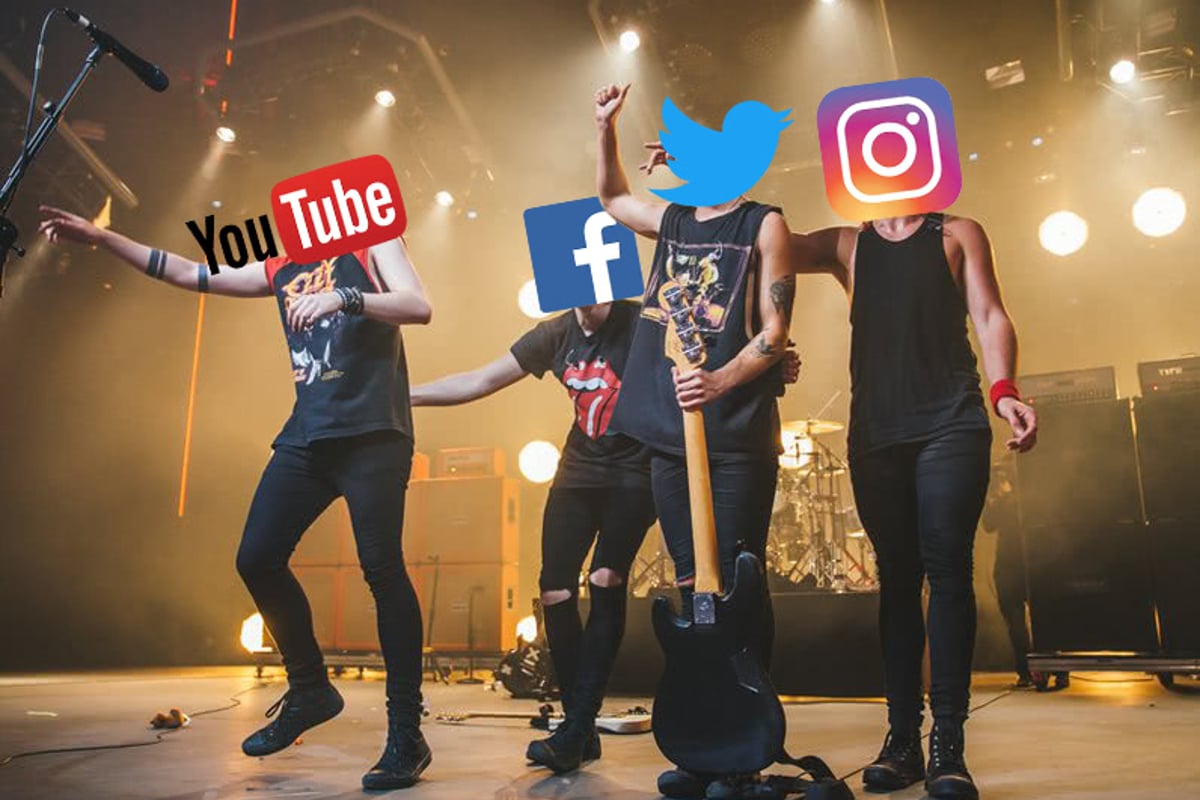Are social media platforms friends or foes of the music industry?

As algorithms increasingly hinder artists from reaching their audiences, and as one platform in particular fails to compensate creators when their songs are covered, the debate around just how we should view social media platforms is heating up.
Are social media platforms friends or foes of artists? It seems at US music conference SXSW, no one has any idea.
The panel Content Distribution Platforms: Friends or Foes?, held at SXSW yesterday, saw four media publishing specialists offer vastly objective opinions.
Granted, social media platforms like Facebook, Twitter and Instagram offer artists an instant audience; but what if that artist’s audience is over a million globally engaged fans whose attention has to be purchased? That’s the argument surrounding social platforms like Facebook, where its algorithm means artists will need to pay for their updates to be seen.
Facebook openly admits its organic reach will be declining over time and is making moves to monetise many of its features – and so it should. Facebook offers artists a tool the industry had never been privy to before. Unlike the industry of old where street posters were king and tour date locations were guessed, social analytics allows us to track where fans are, how engaged they are, and whether an artist’s content is resonating or not.
This is where it gets tricky. If an artist already has a successful revenue model, social media platforms are consistently monopolising ad revenue and taking away existing revenues from creators.
Or in the case of Facebook – where it’s yet to announce a YouTube-like monetising deal to help rights holders – some artists are being blocked from posting cover songs as opposed to having their video fall under appropriate music licence arrangements.
I’ve been an @edsheeran fan for about 7 years now so I couldn’t believe this when I saw it ?
Thank You Ed. Ever the gentleman. pic.twitter.com/8Vgq0QOcIR— CharlotteCampbell (@Ccampbellmusic) March 9, 2017
As mentioned by the panel at SXSW, social platforms are increasingly working with successful artists to further grow their audience and monetise the content on their platform. The key word there is ‘successful’. Unfortunately, if you don’t have a big audience, it’s very hard to get any help from anyone on the platform
Artists need these platforms more than the platforms need them. Music was the third most talked about topic on Twitter last year, local music was among the chief topics of interest among Australian Twitter users, and the most followed Australian was @5SOS guitarist @Luke5SOS, who overtook long-term leader @codysimpson.
As artists struggle to build reach on third-party platforms and increasingly pay for that reach, the industry is gauging their success using the same tools. Labels, promoters, bookers and media alike use social engagement data and platforms like the Pandora-owned Next Big Sound to help decide the worth of an artist; and artists use the same data to help decide the worth of their own content.
What is unfortunate, though, is that much of the entry level and behavioural data used by social platforms is not accessible by the artists themselves. An artist will know exactly how many people have liked/followed their page, but they won’t know who has liked it.
Seventh Street Media’s Luke Girgis, who is at SXSW, said the on-ground narrative is that we’ll see more music fans consuming content on social platforms than on the platforms actually owned by artists.
“Artists who complain about the Facebook algorithm would just find other things to complain about if it wasn’t there,” said Girgis. “Stop complaining. Yes they took away your organic reach but they gave you the most powerful marketing tool ever created in the history of the world. Adapt or die, your choice.”
According to Adam Banicki, Senior Producer at VICE, artists shouldn’t be too worried:
“Young people say Facebook is for old people and Instagram is on the way out,” Banicki said at SXSW.
This article originally appeared on The Industry Observer, which is now part of The Music Network.






























